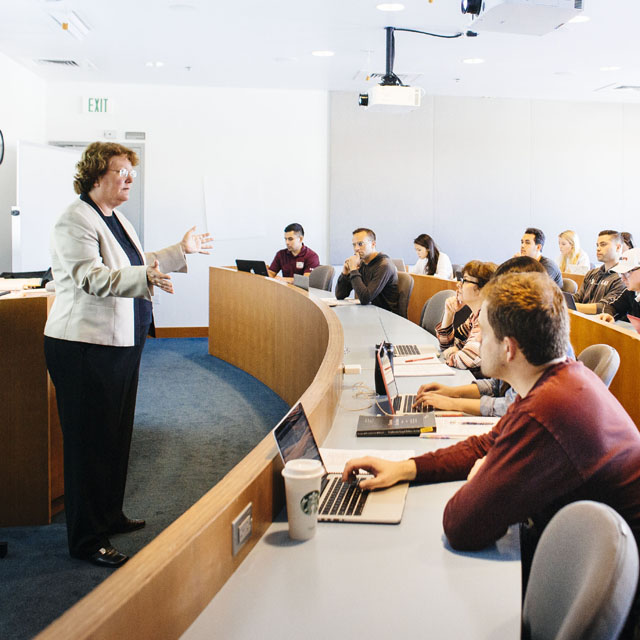Advanced Required Skills Courses

Ethical Lawyering: The Law and Skills of the Lawyer-Client Relationship
The Ethical Lawyering course at Loyola has been nationally recognized for its unique and innovative integration of doctrine and skills. All professors who teach the class have substantial practice experience and because of the substantial research and writing requirements of the course, “EL” is a key component in Loyola’s four semester required skills training program. EL is a one semester course which must be taken in the second year (for students in the day division) or third year (for students in the evening division). To enable professors to provide hands on instruction, classes are small -- no more than 32 students.
Ethical Lawyering exposes students to foundational issues which arise in the lawyer-client relationship and focuses on two basic components: (1) the rules of professional responsibility, and (2) the client interviewing and counseling process. Typically the first part of the semester is dedicated to covering the applicable disciplinary rules. The topics then switch to applying those rules, and learning new skills, in the context of interviewing a client to discover the client’s view of an underlying legal problem, and counseling the client as to the various professionally responsible options for handling that dispute. Agendas for client meetings and techniques for asking questions and analyzing different alternatives, including alternative dispute resolution options, are taught.
Professional actors are used as clients (Loyola was one of the first schools in the country to use professional actors in this manner) and each actor is given a packet of materials describing a legal situation. First in a non-graded “practice” session, which is individually reviewed with the student by the professor, and later in a graded session, students will interview the client to discover the relevant underlying facts, and after ascertaining the client’s goals and doing independent research on the problem, provide realistic alternatives to the client to resolve the legal issues.
Students also produce written work relating to the interviewing and counseling session, which, depending on the professor, can be an e-mail to a senior partner, a letter to the client, a memo to the file, a research agenda and/or an office memo analyzing the client’s case. The student’s final grade is made up of a combination of an examination on the disciplinary rules, the oral skills demonstrated at the interviewing and counseling session, and the research and written work relating to the session.
After completing the course, students will have the knowledge of the professional responsibility rules that will enable them to practice law within the Bar’s ethical guidelines; have a mastery of the ethical issues tested on the MPRE and California Bar Exams; be able to conduct a meeting with a client to get the client’s version of the facts about a legal dispute and understand the client’s goals for resolving that dispute; and be able to explain to the client, both orally and in writing, the pros and cons of different methods of resolving the client’s legal problem. In addition, the student will become more proficient at legal research, and both learn new types, and reinforce basic principles, of legal writing.
Upper Division Writing Requirement
The upper division writing requirement is the fourth semester in Loyola's required skills training curriculum. It provides advanced students with an opportunity to apply the research and writing skills they have attained in earlier semesters to a more rigorous topic. To fulfill the requirement, students must complete a research paper or papers, of at least 7,500 words in length. Some students complete the requirement by completing a note or comment for the Loyola Law Review, the Entertainment Law Journal, or the International and Comparative Law Journal. The curriculum also offers seminars on a variety of topics, skills courses and practica which fulfill the requirement.